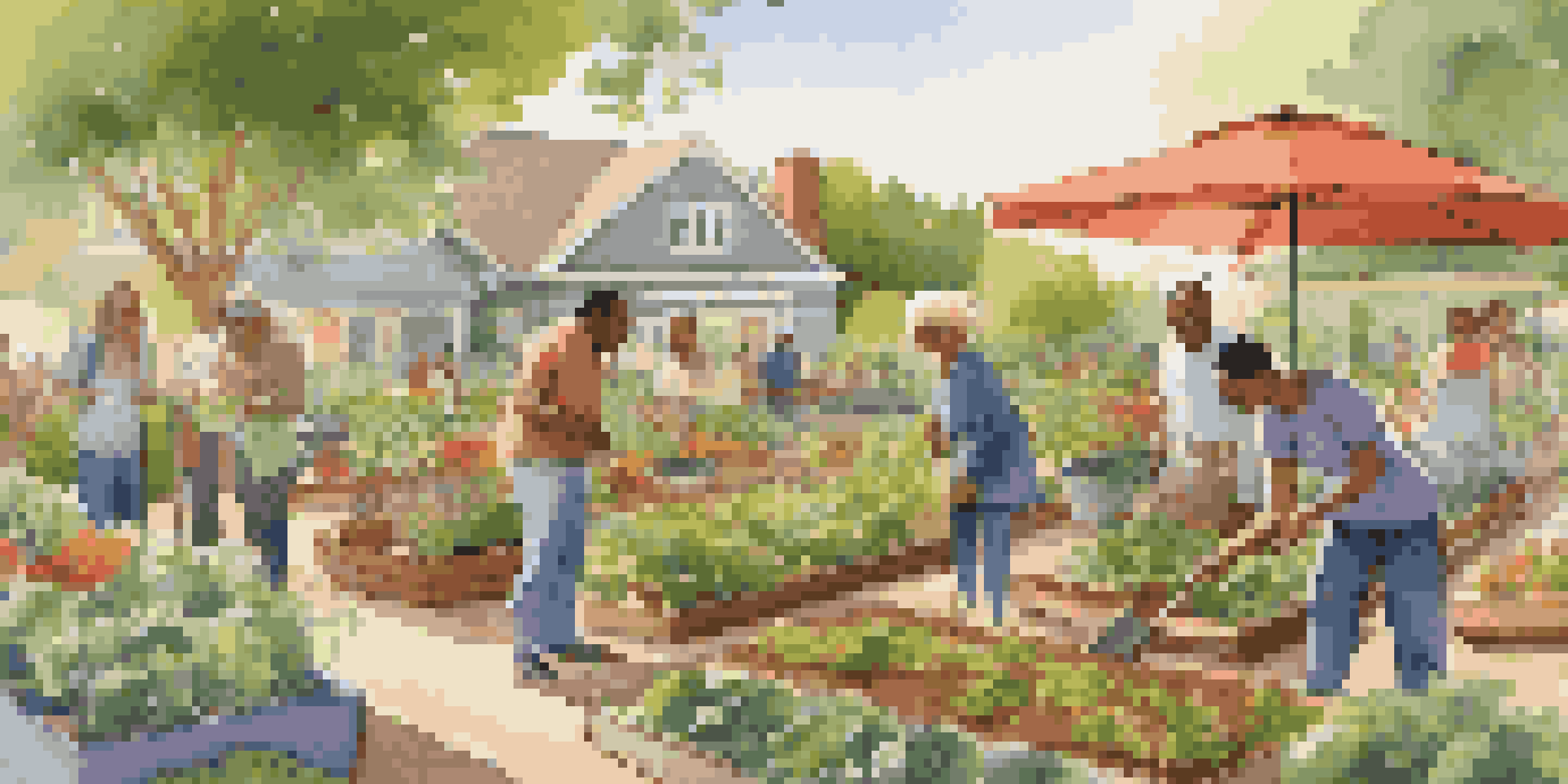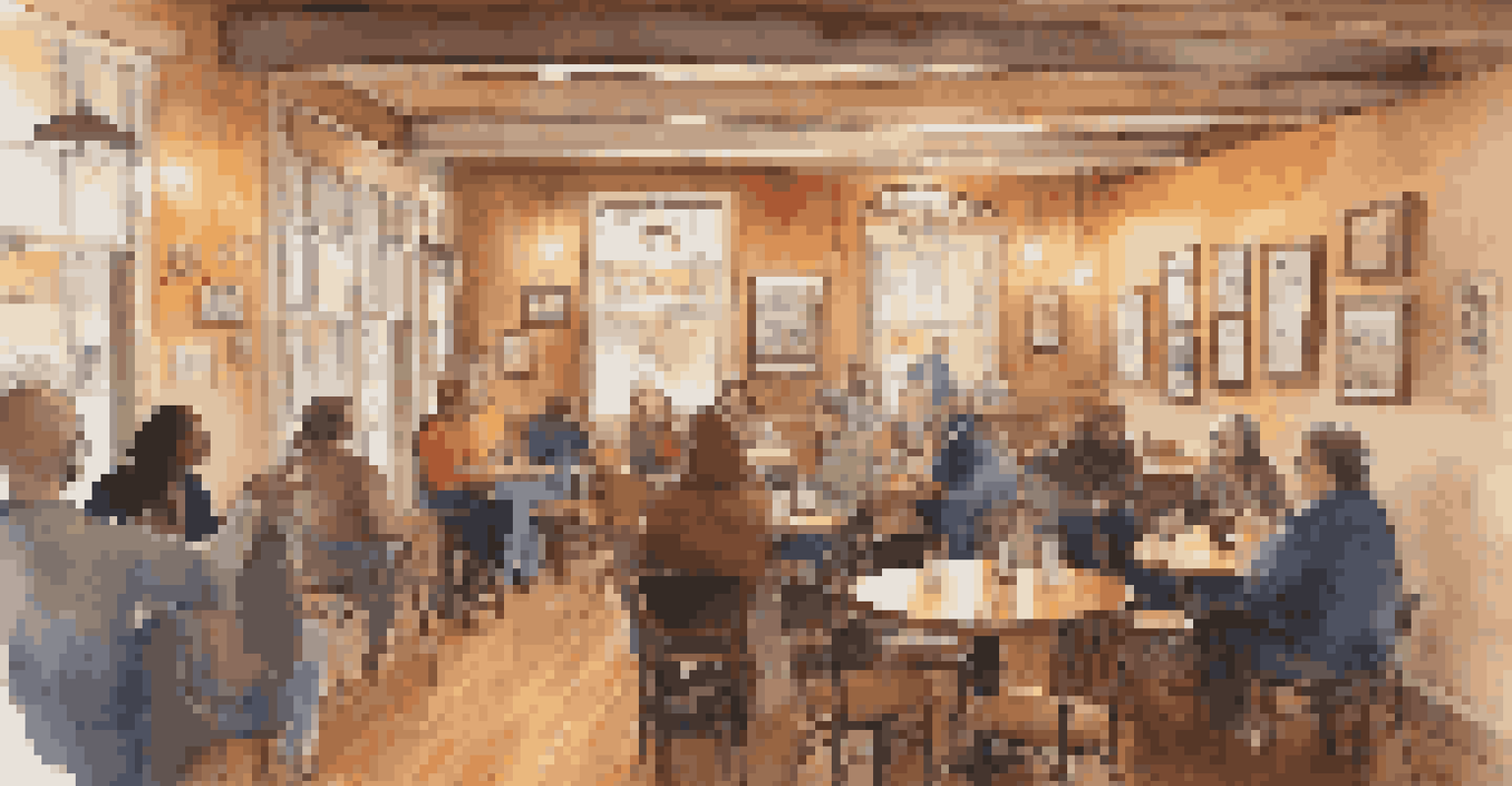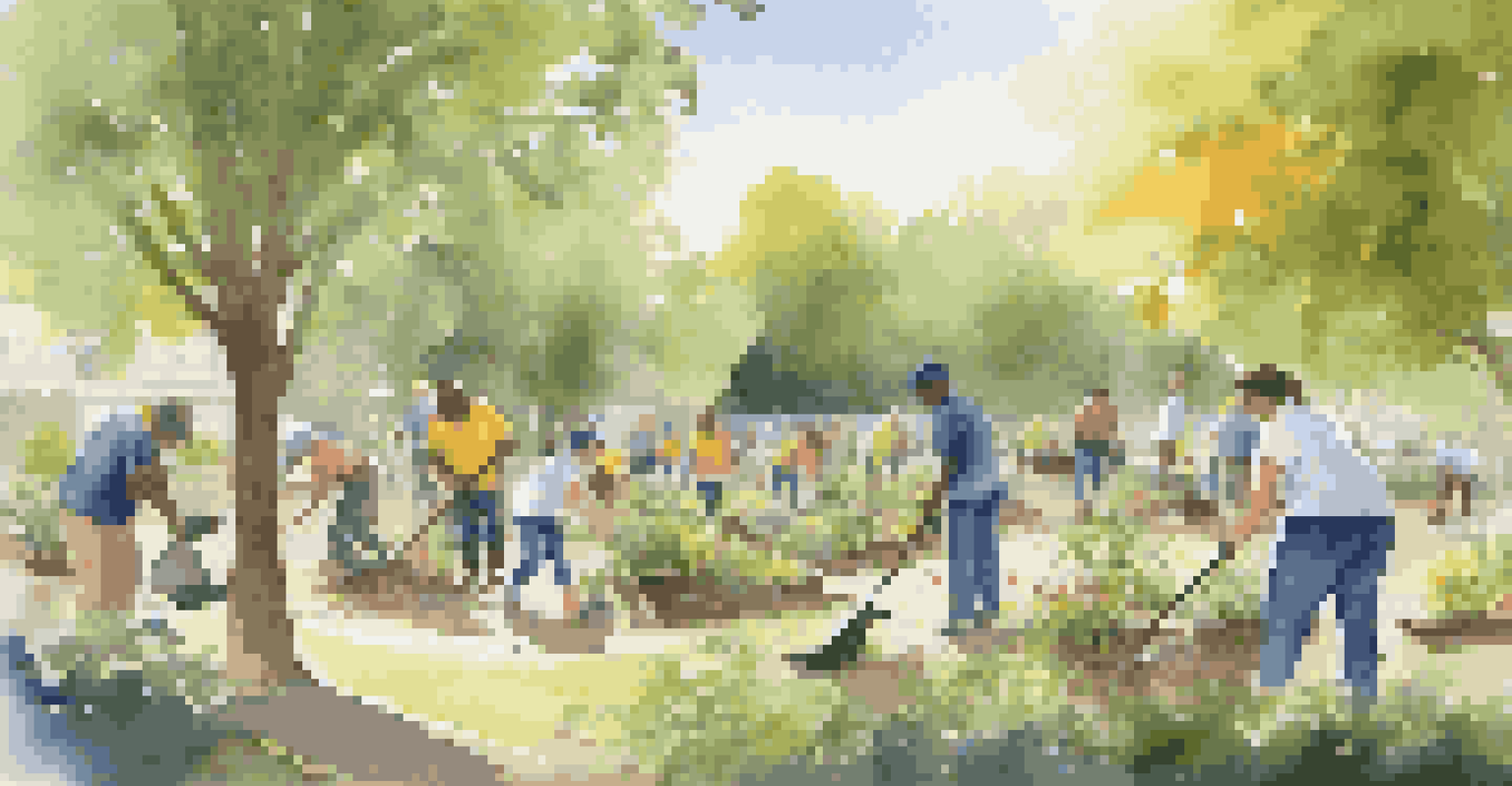Encouraging Lifelong Learning Through Community Experiences

Understanding Lifelong Learning in Community Contexts
Lifelong learning is the ongoing, voluntary, and self-motivated pursuit of knowledge for personal or professional development. In a community setting, this learning can take many forms, from workshops to informal gatherings. By engaging with others, individuals can explore new ideas, skills, and perspectives that enrich their understanding of the world.
Education is the most powerful weapon which you can use to change the world.
Imagine a community garden where neighbors come together not just to plant vegetables, but to share gardening techniques, recipes, and cultural stories. This shared experience fosters a sense of belonging and encourages participants to learn from one another. It’s a powerful reminder that learning doesn’t just happen in classrooms; it thrives in everyday interactions.
In this context, lifelong learning becomes a shared journey, where community members motivate and inspire each other. This collaborative approach not only enhances individual growth but also strengthens community bonds, creating an environment ripe for continuous exploration.
The Role of Community Programs in Lifelong Learning
Community programs serve as vital platforms for lifelong learning, offering structured opportunities for individuals to engage in new activities. From adult education classes to local workshops, these programs cater to diverse interests and age groups. They provide a safe space where individuals feel encouraged to step outside their comfort zones and try something new.

For instance, a local library might host a series of technology classes aimed at older adults, helping them navigate smartphones and social media. This not only empowers participants but also promotes intergenerational connection, as younger members of the community can assist in teaching. It's a win-win situation where everyone involved walks away with new skills.
Community Programs Fuel Learning
Structured community programs provide diverse opportunities for individuals to engage in lifelong learning and develop new skills.
By creating accessible and varied programs, communities can foster a culture of learning that resonates with all members. This inclusivity ensures that lifelong learning becomes a common goal, making it an integral part of the community’s identity.
Peer Learning: Harnessing Collective Knowledge
Peer learning is a powerful method where individuals learn from one another in a collaborative environment. This approach breaks down traditional learning barriers and emphasizes the value of shared experiences. When community members come together to teach and learn, they create a rich tapestry of knowledge that is often more relatable and engaging than conventional methods.
The beautiful thing about learning is that no one can take it away from you.
Consider a knitting circle where experienced knitters share techniques with beginners. Not only do they pass on skills, but they also exchange stories and build friendships along the way. This informal teaching can lead to deeper connections, enhancing both personal and communal growth.
By encouraging peer learning, communities tap into the diverse talents and experiences of their members. This collective knowledge not only enriches individual learning but also fosters a sense of unity and belonging, making the community stronger.
Creating Safe Spaces for Exploration and Growth
For lifelong learning to flourish, it’s essential to create safe spaces where individuals feel comfortable exploring new ideas. This involves cultivating environments that are inclusive, welcoming, and free of judgment. When people know they can share their thoughts and questions without fear, they’re more likely to engage actively in the learning process.
Imagine a local coffee shop that hosts open mic nights, allowing community members to share their poetry or music. These events not only showcase talent but also provide a platform for self-expression and vulnerability. Participants often leave feeling empowered and inspired to continue their creative journeys.
Peer Learning Builds Connections
Peer learning fosters collaboration and shared experiences, enriching individual growth while strengthening community bonds.
By prioritizing safety and inclusivity, communities lay the groundwork for meaningful learning experiences. This nurturing environment encourages individuals to take risks, ask questions, and ultimately grow as lifelong learners.
Leveraging Technology for Community Learning
In today’s digital age, technology plays a crucial role in enhancing community learning experiences. Online platforms and social media can facilitate connections among individuals, allowing them to share resources and knowledge beyond geographical boundaries. This accessibility opens up a world of opportunities for collaborative learning.
For example, a community could establish a Facebook group where members share articles, online courses, and insights related to their interests. This virtual space enables continuous learning, even for those who may have difficulty attending in-person events. It also fosters a sense of global community as individuals connect with others who share similar passions.
By embracing technology, communities can expand their reach and create dynamic learning environments that engage diverse audiences. This adaptability ensures that lifelong learning remains attainable for everyone, regardless of their circumstances.
Volunteerism: A Pathway to Practical Learning
Volunteering is a fantastic way to promote lifelong learning within communities by providing hands-on experiences that are both educational and impactful. When individuals volunteer, they not only contribute to a cause but also acquire new skills and insights in the process. This active engagement allows them to learn in ways that traditional education often cannot offer.
Take, for example, a community clean-up initiative. Participants might learn about environmental sustainability, teamwork, and project management—all while making a tangible difference in their neighborhood. Such experiences foster a sense of purpose and achievement, reinforcing the idea that learning can happen anywhere.
Technology Expands Learning Access
Leveraging technology enhances community learning by facilitating connections and resource sharing beyond geographical limits.
By encouraging volunteerism, communities create opportunities for practical learning that benefits both individuals and society. This reciprocal relationship enhances community ties and inspires a culture of continuous education and growth.
Celebrating Achievements to Inspire Continued Learning
Recognizing and celebrating achievements is vital in encouraging lifelong learning within communities. When individuals feel acknowledged for their efforts, it boosts their confidence and motivates them to pursue further development. Celebrations can take various forms, from informal gatherings to more structured award ceremonies.
For instance, a community center might host an annual showcase where participants display the skills they’ve learned through various programs. This event not only highlights individual accomplishments but also showcases the collective growth of the community. It’s a visual reminder of what can be achieved through collaboration and learning.

By celebrating achievements, communities reinforce the value of lifelong learning and inspire others to embark on their own learning journeys. This positive reinforcement creates a thriving environment where curiosity and exploration are encouraged.